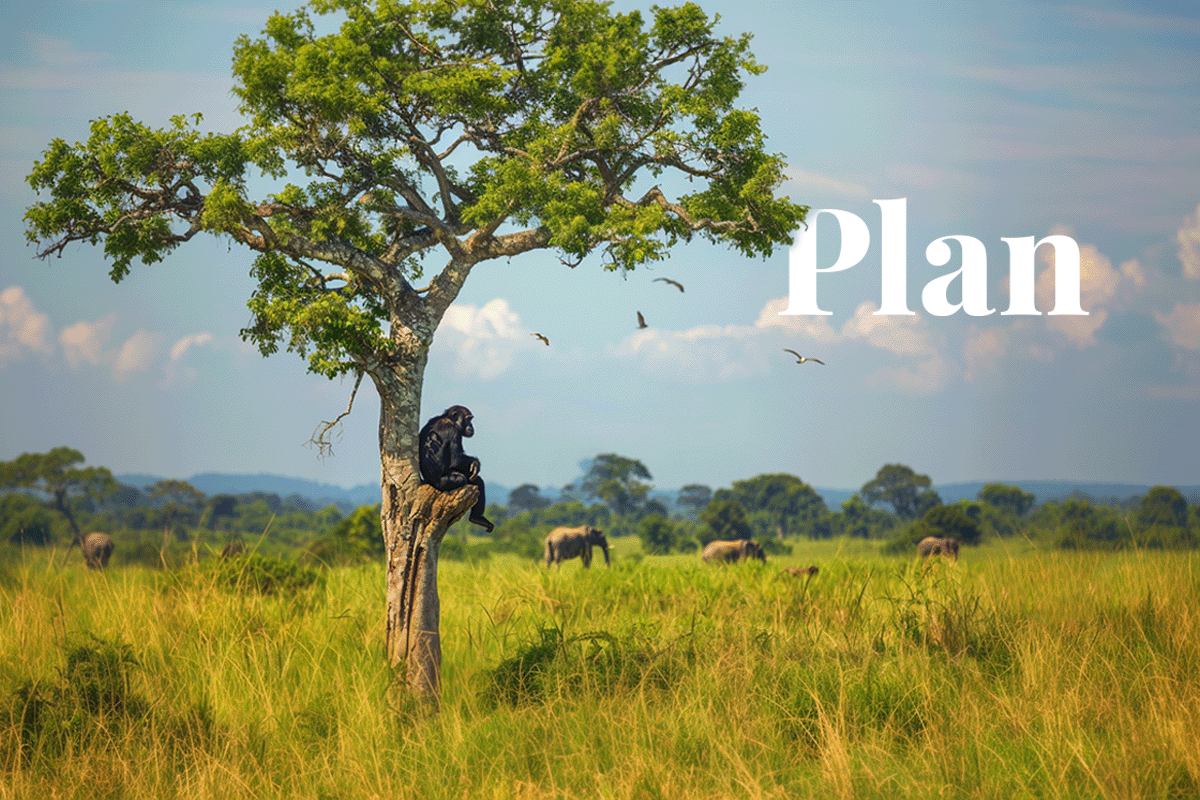Uganda, renowned for its rich biodiversity, has launched the second phase of the Biodiversity 2030 (BIODEV2030) project, aiming to curb the alarming rate of biodiversity loss in the country. The project, supported by the French Development Agency through Expertise France, was officially initiated in Kampala on 3 June 2024.
 Biodiversity of Uganda - a chimpanzee sitting on a tree, elephants walking in the background. AI generated picture.
Biodiversity of Uganda - a chimpanzee sitting on a tree, elephants walking in the background. AI generated picture.
Moses Egaru, the Country Representative for IUCN in Uganda, highlighted the success of Phase One, which mobilised stakeholders from various sectors to address biodiversity degradation. ‘Phase Two will implement these voluntary commitments, aimed at reducing biodiversity loss and influencing policy and practice to end biodiversity loss through a multi-sectoral approach’, Egaru explained.
The $325,000 (1.2 billion Ugandan shilling) project seeks to promote sustainable production practices and reconcile biodiversity with development. Uganda, home to over 18,783 species of flora and fauna, has seen significant biodiversity loss, with the rate of decline remaining high at 10%–11% per decade.
Read more: Farmers reap double benefits with innovative carbon credits
Phase Two focuses on working with multiple sectors, including private companies, civil society, local governments, and indigenous communities. The objective is to align with the Kunming-Montreal framework by promoting production practices that support both biodiversity and development.
The project also aims to reform sectoral public policies to better incorporate biodiversity considerations and facilitate collective actions to reduce biodiversity pressures. Egaru emphasised the importance of building the capacity of stakeholders to tackle biodiversity loss, climate change, and natural resource degradation.
Read more: Conservation triumph: the Bulindi Chimpanzee Project shines on Planet Earth III
Dr Paul Mambu, from the Ministry of Agriculture, highlighted the ministry’s efforts to promote non-chemical pest control methods to reduce the impact on biodiversity. ‘We promote what we call Integrated Pest Management, using all different forms which are friendly to other life forms and which can make agricultural production sustainable’, Mambu stated. The project underscores the importance of collective action and sustainable practices in addressing Uganda’s biodiversity challenges.
At DGB Group, we develop and implement impactful, validated nature-based solutions that promote biodiversity and improve community wellbeing. DGB's initiative in Uganda, the Bulindi Chimpanzee Habitat Restoration Project, stands as a remarkable success in conservation. This project aims to restore the habitat of the chimpanzees and reduce human-wildlife conflict. From the stunning imagery in Planet Earth III to the detailed processes of our restoration project, this story vividly illustrates the profound interconnectedness of all living things.
Discover how you can contribute to DGB’s project in Uganda



